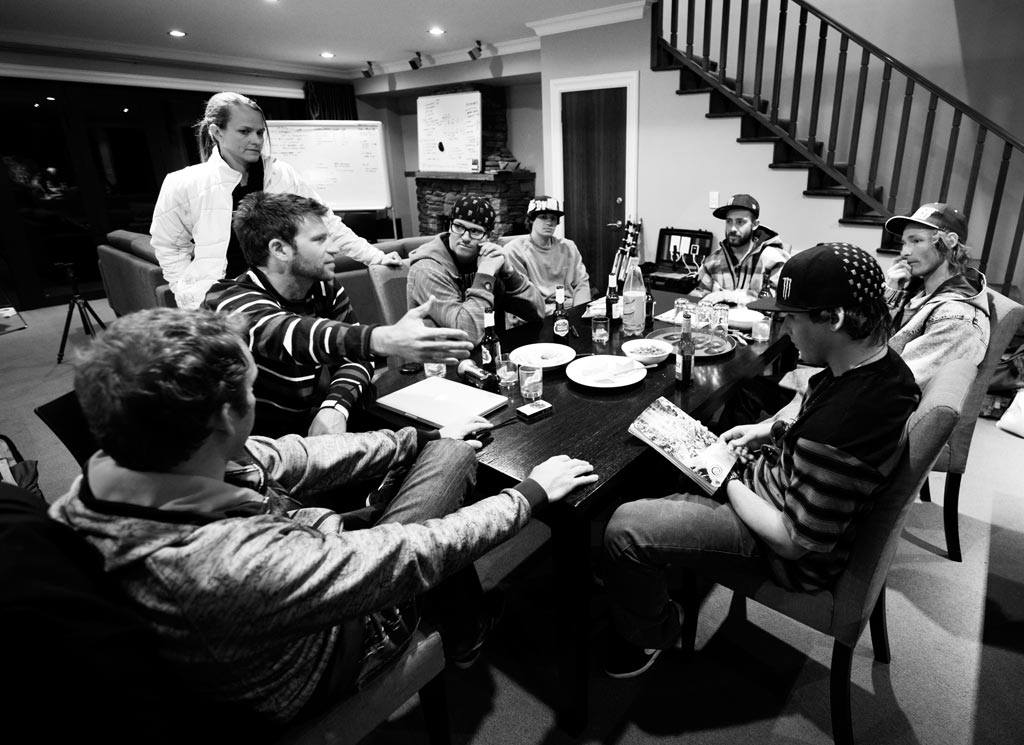
If you turn back the clock a couple decades, you’ll find me in the following situation: I’m sitting at my parents’ kitchen table, explaining to them that I’ve decided to drop out of med school and a PhD in philosophy to become a professional photographer. In addition to being a tough conversation, this was perhaps the biggest turning point in my career (and life). It was the moment where I walked away from what I was told I “should” do and committed myself to building a career around my passion: creativity.
It’s a path that few (including me) could have predicted, but I’m far from the only one with a winding path to my ultimate destination. In fact, I’d suggest that paths like mine are the new normal, that the concept of a linear career path is nearly fiction, and almost entirely the exception rather than the rule.
As such, nearly all of us will find ourselves at a turning point in our careers (or lives), whether by choice or by circumstance. And while there are rarely easy choices in these situations, I’d like to share my own personal approach for coming out on the right side of them– your mileage may vary, but this is what’s worked for me.
These three things should be cornerstones to your success:
1- Get rid of any self-limiting thinking
This may be a challenging idea, but I believe that for most of us the biggest barriers to achieving our goals are self-imposed. The truth is that we often don’t attempt to achieve our goals – especially big life goals – because we’re too afraid to even try.
I say this not to scold or criticize, but to vocalize. We have work to do as a culture to illuminate something that’s not often recognized: self-limiting thinking is subconsciously ingrained in many of us. The defining characteristic of achievers like Richard Branson, Arianna Huffington or Mark Cuban is largely that they were able to throw off that part of our culture. Yes, there are logistical, financial, geographic and other obstacles, but if you ask yourself what’s really stopping you from realizing your goals, the answer will usually come down to one thing: fear.
Fear that you’ll fail, fear that your peers will laugh at you, that you’ll regret it even if you miraculously succeed, and so forth. This fear, it turns out, is generally toxic and not helpful (after all, it’s no longer saving us from tigers and prehistoric predators as it was evolutionarily programmed to do…). How it manifests in most of our brains today is by turning into self-doubt and, ultimately, paralysis. And it’s this ugly concept that keeps us from our goals.
When I first thought of quitting med school to pursue photography I had my share of fear (my concerned relatives made sure of that). But I also knew that with the right gameplan and a whole lot of hustle, it was possible. Yes, there was of course some risk- but by breaking the larger goal into smaller ones that I knew I could tackle, I removed the fear factor. I just had to roll up my sleeves and get to work.
[It’s an important caveat that the above doesn’t apply to the truly disadvantaged who don’t have access to basic resources and support systems (and we must redouble our efforts to help these people). But for the rest of us– most of the people reading this article– the biggest hurdle we must clear is our own fear, uncertainty and self-doubt.]If you’ve knocked down any self-limiting thinking, then you’ve already done the hardest work. Now it’s time to take some actual action.
2 – Make a gameplan
The gameplan will be different for everybody, but many of the pieces are universal.
First – figure out what’s keeping your from your goals. Literally. What obstacles – if you removed them – would have you standing at your goal? Figure those out and find solutions for each of those things that seem to be standing in your way.
Next, consider a mentor as part of your plan. Finding a mentor can be a gamechanger, providing you with another viewpoint on the challenges you face and offering you the wisdom of years of experience and lessons learned the hard way. And while you might think of a mentor as some kind of mythical figure rarely seen in the material plane, the truth is that mentors are all around us. Humans love to help each other– all you have to do is seek out a mentor, and have the courage to ask when one surfaces.
Another key piece is education – which is now more accessible than it’s ever been in human history. In the past we were beholden to one gatekeeper after the next, from college admissions boards to loan officers and experts who hoarded their knowledge. But today? Those barriers are quickly coming down (and in many cases, are completely gone).
Thanks to the transformative technology of the past decade or so — streaming video, MOOCs, wikis, and the like– we all have access to nearly endless information, including free or affordable education on any subject you can think of. Whether it’s looking up a quick tutorial on YouTube or taking an in-depth class on platforms like MIT’s OpenCourseWare or CreativeLive (the online education company I founded), you no longer need anyone’s permission to get a world-class education.
You’ll also need to test your gameplan to see what works, poke holes in what doesn’t and repair them– and today we can test ideas faster than ever thanks to recent leaps in technology. Want to see if your concept for a business holds water? You can hang up your digital shingle in an afternoon, and take it down just as quickly if need be.
Never confuse motion with progress.
3. Take the action & do the work. Should I say that twice? Do the work.
In a world full of inspirational quotes and memes telling you to hustle, “embrace the grind” and so forth this may seem obvious or even trite– but it has to be said. Your gameplan is only as good as the work you put into implementing it.
My own method for holding myself accountable is simple but ruthlessly effective: I look myself in the mirror every day and ask myself if I really, truly did everything I could have done to achieve my goals. I’m my own toughest critic, so this works for me- but if you struggle with this method then consider one of the social accountability platforms like Stickk, joining an online or in-person mastermind group, or asking your mentor to help keep you honest.
Closing thoughts
Rather than thinking of the above as a step-by-step plan, think of it as three pieces that work together and feed/reinforce each other.
When you feel empowered and confident, you’re more motivated to put together a bulletproof gameplan. With a great gameplan, you’re more likely to feel confident and put in the work to make it a reality. And when you see traction from putting in the work, self doubt melts away– a positive feedback cycle that is key to navigating life’s inevitable turning points.
Some super inspiring stuff from Lewis here on navigating a turning point– his career in pro football was abruptly ended by an injury, and with some #PMA and the right gameplan, he parlayed it into a new career as an entrepreneur
As a last, last thought, remember the Jim Rohn saying that you are the average of the five people you spend the most time with. The importance of surrounding yourself with the right people cannot be overstated, so take stock of those around you, re-engage with those who are energizing and helping you, edit out those who aren’t, and you’ll be that much closer to living the life of which you dream.
Originally published on Virgin.com

















